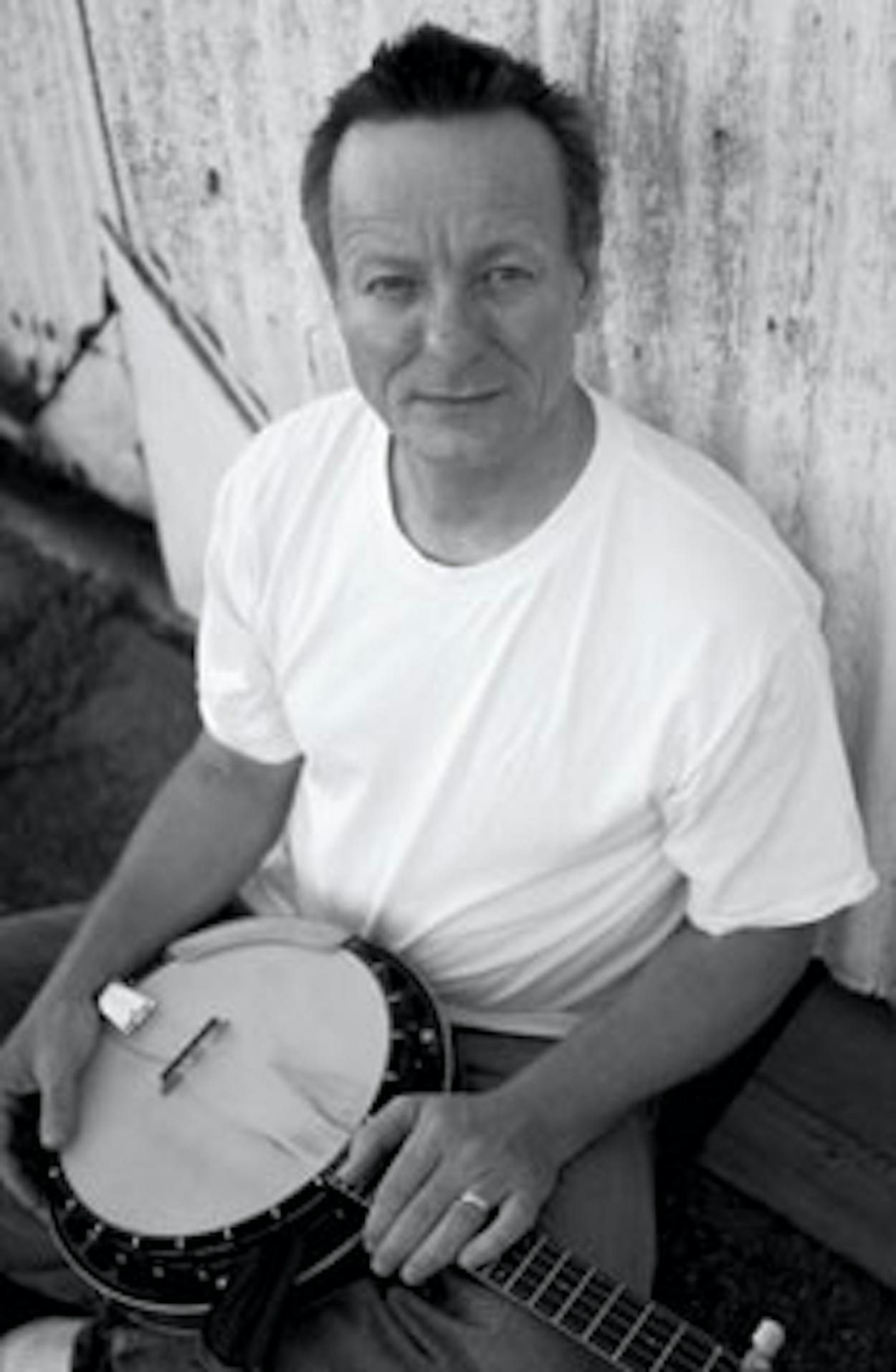As an instrumental virtuoso with a wildly curious nature, the 47-year-old songwriter, banjo player, and guitarist is known for genre cross-pollination: He has played bluegrass with Austin band the Bad Livers, jazz with Bill Frisell, and country with Robert Earl Keen. Pizza Box (ATO), Barnes’s first album on a major label, counts Dave Matthews as a collaborator.
You grew up in Belton. What do you remember about your upbringing? It was kind of austere—a farming community. But I have good memories of the people there who played music.
Was your family musical? Not so much. But they were big music fans. My dad was an original rockabilly dude—he raced cars and went to see Elvis in Waco—and my parents had a huge admiration for all the Opry stars: Hank Williams, Red Foley, Bob Wills. I grew up thinking those guys were the greatest expression of humanity, and I wanted to participate in that. Early on I got my hands on a banjo, and at church—I grew up in the Church of Christ—we sang a cappella, so I got into that. Then in my teens, I had a punk rock band, and I’d go to Austin and play at this one place, Raul’s. Or I’d go to the Armadillo and see all those bands—the Clash, the Dead Boys, Elvis Costello, Nick Lowe, Talking Heads, the Ramones. Austin was such a nexus.
So why the banjo? I don’t know. One thing that’s always weirded me out about the banjo is that the hand motions don’t look like they would make those sounds. I’ve been playing for 37 years, and to this day, I see my hands, and it’s like I’m looking at a dubbed Japanese movie or something. But the sound just drives me crazy—it’s a preverbal attachment. I had to escape the typical association of the banjo to incorporate it into the music I was interested in: techno, glitch, punk rock.
The Bad Livers had a long run but fell apart rather suddenly in 2000. I realized I was writing a lot of songs that didn’t have a place in the tableau of that band. I’m really kind of a fractured pop songwriter. Also, we just worked our asses off, and that stuff can just take over. We began to feel that there were other things we needed to do.
So you moved to the Pacific Northwest. How come? I had really liked Seattle when we were on tour. Because I moved, I met people—like Bill Frisell, Wayne Horvitz—who were doing some far-out stuff. I got interested in sample-based music, noise music, improvised music. Studying with Bill and Wayne, it changed my life. I wasn’t seeing myself as a country musician anymore; I was a contemporary person who was interested in postmodernism, post-structuralism, semiotics, philosophy, math and art, architecture. I’ve immersed myself in a world that is so inspiring.
How did you meet Dave Matthews? He’s a Seattleite; he lives in Fremont. He came to a show of mine. I didn’t see him again for about five years, and then I was playing banjo with Robert Earl Keen’s band, and we opened up some shows for Dave, and he kept saying, “Why don’t you come play with us?” We’d get together, play guitars, eat lunch, and talk about music. After hearing a batch of my songs, Dave said, “Man, I wanna help you make this record.” That’s how this all got started.
That’s quite a step, to be on Matthews’s label. With Paul McCartney and Radiohead. I’m so excited by it. The other day Dave tweeted that the record was on iTunes, and I had so many hits on my site that it crashed.
Pizza Box is a very song-focused project. I was trying to make the best batch of songs I possibly could. Hanging around these writer guys, like Keen, who write songs that affect a lot of people—I wanted to do that.
Listen to tracks from Pizza Box.







